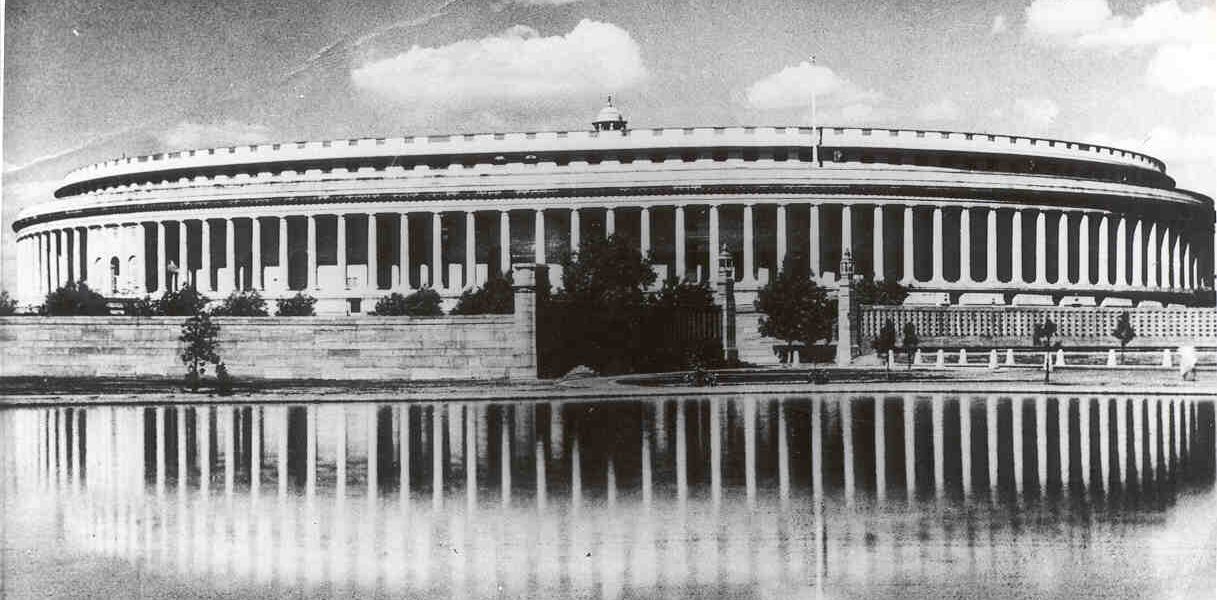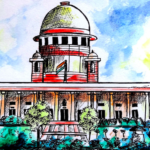
The Pre-Legislative Consultation Policy, 2014
The Pre-Legislative Consultation Policy, 2014[1] seeks to ensure transparency in the legislative process. It creates a mechanism for reaching out to stakeholders to deliberate on draft Bills and resolve any contentious or complex issues to build consensus. The aim of the policy is to increase the credibility and legitimacy of the legislative action, thereby also facilitating accountability to the public. Based on the recommendation of the National Commission to Review the Working of the Constitution (NCRWC)[2], the policy requires that draft legislations should be placed in the public domain with a justification for such enactment, its financial and social costs, pros and cons. Furthermore, the policy states that an estimated impact assessment and key legal provisions have to be made public as well. All associated information should be available for public scrutiny for a minimum of 30 days. The application of the policy extends to not only legislative proposals but also subordinate legislations.
However, on many occasions, draft legislations have flouted the policy. Significant examples of this are the much-debated Farm Acts[3]. The legislations were passed in a sense of unknown urgency without any discussion in the Parliament, let alone a prior consultation with the stakeholders. The protests that have erupted throughout the nation against these enactments are a testimony to the legislature failing to represent the will of the people and social groups which elect the Members of Parliament.
The argument that because the Members of Parliament are elected by the common man, therefore they are an extension of the public’s thought process can be sustained only in theory and is impractical in real terms. The citizens remain clueless regarding the laws and policies that are going to directly affect them. For instance, in 2019, the Government did not publish the Draft Coastal Zone Law, 2019 for comments and suggestions. Furthermore, it did not even pay heed to the objections raised by the fishing community which would bear the effects of the legislation[4].
A major drawback of the process of stakeholder consultations is that it is considered to be merely ‘good practice’. Impact assessment is not made mandatory either by the Pre-Legislative Consultation Policy, 2014 or the Manual on Parliamentary Procedures in India[5]. The non-compulsory nature of the process leaves the public no choice but to place their discontent in non-institutional forums and setups. The lack of a facilitative institutional structure allows the Government to trivialize such opposition and dissent. This is clear from the handling of the protests against the Citizenship Amendment Act, 2019 and Farm Acts of 2020, without any comment on the merits of the said enactments. These examples highlight the need for the institutionalization of the Pre-Legislative Consultation Policy.
Stakeholder Consultation: A Part Of The Citizens ‘Right To Know’
It is a well-settled position by the Supreme Court that the ‘Right to Know’ is a species of the Right to Freedom of Speech and Expression and hence is a constitutional guarantee under Article 19(1) (a)[6] and Article 21[7]. In People’s Union for Civil Liberties v. Union of India[8], the right to information or knowledge was given the status of a human right which is necessary for transparent and accountable governance. Furthermore, it was emphasized that governance must be participatory.[9]
In Bennett Coleman & Co. v. Union of India[10], it was held that “The people have a right to know every public act, everything that is done in a public way, by their public functionaries.” Taking into account the nature of the legislative activity, it cannot be denied that it is very much a public function. Therefore, keeping the judgement in the Bennett Coleman case as the background, it is argued that the entire legislative process should be in the knowledge of the public and the citizens must have an opportunity to make suggestions as the law ultimately affects them. This should imply that if stakeholder consultations do not take place as a precursor to a Bill becoming an Act, then it would make unjustified inroads in the Right to Know of the people. It is imperative to realise that absence of pre-legislative impact assessments has the effect of denying a critical constitutional guarantee.
In many countries, for example, in the United Kingdom, Canada, Switzerland and South Africa, the pre-legislative consultation process is mandatory[11]. This means that a particular Act can be challenged in the Courts if this procedure is not followed or improperly followed. While there is no express statutory provision that allows the people to do the same in India, it is high time that creative interpretations are adopted and citizens make use of judicial forums to assert their right to know. The example of the enactment of the Right to Information Act, 2005 needs to be the guiding light. A plethora of cases finally led to the passage of the RTI Act. A similar process of institutionalization is required in the present scenario.
Conclusion
Transparent governance is not a novel aim. It is an ever-present beacon of light that is supposed to guide the actions of the public functionaries. Shrouding the process of legislation in a cloak of secrecy is a hurdle which can and should be immediately removed. Involvement of stakeholders at the stage of drafting also simplifies the process of dispute resolution, if they so arise. Therefore, for a better participatory democracy, it is necessary that the Pre-Legislative Consultation Policy, 2014 be institutionalized. This will lead to positive outcomes in the form of better thought-out laws and deep trust in public institutions for it is only a well-informed citizen who can demand greater accountability and hence increase the efficiency of the laws.
Photo Source: Rajya Sabha Website
Citations
[1] The Pre-Legislative Consultation Policy, 2014, available at: http://legislative.gov.in/documents/pre-legislative-consultation-policy (accessed on 31.01.2021)
[2] National Commission to Review the Working of the Constitution, available at: https://legalaffairs.gov.in/ncrwc-report (accessed on 31.01.2021)
[3] The Farmers’ Produce Trade and Commerce (Promotion and Facilitation) Act, 2020; Farmers (Empowerment and Protection) Agreement on Price Assurance and Farm Services Act, 2020; Essential Commodities (Amendment) Act, 2020
[4] Govt Disregarded 90% Objections To 2019 Coastal Zone Law: Investigation, available at: https://www.indiaspend.com/govt-disregarded-90-objections-to-2019-coastal-zone-law-investigation/ (accessed on 31.01.2021)
[5] On Parliamentary Procedures of Government of India, Lok Sabha Rules, available at: https://mpa.gov.in/sites/default/files/Manual2018_0_0.pdf (accessed on 31.01.2021)
[6] Bennett Coleman & Co. v. Union of India, [1973] 2 SCR 757; Express Newspaper v. Union of India, AIR 1958 SC 578; Union of India v. Association for Democratic Reforms, (2002) 3 SCR 294
[7] Reliance Petrochemicals Ltd. v. Indian Express Newspapers, 1988 SCR Supl. (3) 212
[8] (2004) 2 SCC 476
[9] Constitutional Perspective on the Right to Know, available at: https://www.lawteacher.net/free-law-essays/constitutional-law/constitutional-perspective-on-the-right-to-know-constitutional-law-essay.php (accessed on 31.01.2021)
[10] [1973] 2 SCR 757
[11] India needs an institutional framework for Pre-legislative Consultations, available at: https://clpr.org.in/blog/india-needs-an-institutional-framework-for-pre-legislative-consultations/ (accessed on 31.01.2021)





Hi Shambhavi,
The article is quite convincingly written. Pardon my pessimism but I am of the opinion that this is just an utopian concept that is bound to face a lot of hurdles during implementation and has the potential to do more harm than good. Allow me to explain my reasons to believe so.
In General –
1. Historical perspective :
If history of Independent India has to be taken as a teacher, such stakeholder representations can be traced right from the framing of Constitution of India to current day budget making process. Hence stakeholder involvement has been a part and parcel of our covention that was formalised by the article mentioned by you in this piece. We all know how our Constitution failed to meet the needs of a lot of sections, leading to a series of amendments in the intial years. And an entire Mini Constitution in the form of 42nd Amendment Act.
Year on Year we had commissions after commissions whose sole objective was to consult the stakeholders and draft an outline for laws to be passed by parliament. Most of these committee reports are still waiting to be read let alone implemented. Such laws take atleast a decade to be formalised due to the slow process (which is justifiable, given the extent of diversity and vastness of the nation) and by the time they get formalised, the need of our rapidly growing country changes (and by a lot!!).
Therefore we need to devise a proper and accountable channel that works in a time bound manner to hold such stakeholder meets. We cannot afford to let them linger on for years. And what more important! Action! So history paints a very gloomy picture for this process.
2. Political aspirations :
Now, the biggest flaw with the idea of stakeholder involvement is the assumption that stakeholders are free of any political motives. This assumption breaks in a country like ours where political aspirations run fervent among the masses. Where (almost) everyone feels like they need to support or oppose a party. The UPA that is opposing the farm bills today was the one who had it on their “aspirations” for years. There have been similar instances where NDA has brought a law that they opposed with full zeal when UPA tabled it in the parliament. So there seems to be no mechanism in site that can ensure that the stakeholder representations are apolitical and free of ulterior motives.
Biggest example is the division of our country on communal lines just to accomodate the political aspiratioins of half a dozen at the cost of lives of millions of people in Punjab and Bengal area. The action has its repercussions till date.
I do not have a solution to this hurdle in view. You suggest.
3. Aberrations/Manipulations in Representation :
Another major hurdle is the problem of manipulation in representation. How to ensure that the loudly expressed interests of a few do not subdue the quiet and courteous needs of the more. We need to avoid enaction of “Jiski Lathi Uski Bhains” in our daily discourse (sadly this has become today’s truth – Bhains should belong to its rightful owner). If we try to collect the mandate via an online forum, we would be missing on a very big and key demography that deserves to be at the core of our policy making.
So what could be an authentic way to collect such grassroot level representations? Answer lies in democratizing technology and making it accessible to one and all. Connecting all the village panchayat offices via Broadband is a bold step in this direction. Let’s hope for the success of it.
Farm Law Protest in specific –
1. Vagueness in counter argument :
A quick glance at the original farm laws that were passed by an ordinance after a discussion with a parliamentary committee, will expose numerous loopholes to a legal luminary like yourself. I too have certain reservations over a few provisions of the original bill. The farmers were in the right to raise these concerns quickly during the initial phase of the protests. But things took an interestingly ugly turn when government offered to fix these loopholes via an amendment and we witnessed the farmer leaders, backed by some people with vested political motives, come up with a new demand of repealing the bills as whole.
Reason for such change in perspective? None that can be found or ever stated by these leaders.
2. Political Motives :
With light being thrown upon involvement of some malintent foreign bodies trying to use the innocent farmers sitting at the borders as scapegoat for carrrying out condemnable actions, I would say that these protests are losing merit by the day. Farmers, who till this land with their sweat and blood, need to unite and voice their genuine concerns in an amicable manner while joining hands to oust the ill-intended individuals among them.
The protests whose examples have been presented in this piece notably the CAA and Farm Laws, find their roots in “Speculative Hearsay” i.e. The arguments are of the form that “X might happen if these are implemented.”, emphasis on the word “might”. No objective evidence could be presented that can prove the strength of “might”.
Let’s take an example,
Case 1: I hit someone with my car who is blocking my path with a gun pointed to me. My argument: He “might” have tried shooting at me.
Case 2: I hit someone with my car who is blocking my path unarmed. My argument: He “might” have tried killing me.
Which case will hold water in a legal battle? Similarly such “Speculation” based protests are an example of massive misinformation campaigns that are able to fool a lot of masses in a few blows. So such protests lose merit when they cannot back their argument for protesting with a substantive reason.
To end on an optimistic note, I would suggest that let’s not lose hope in the biggest stakeholder involvement of all – The Festival of Democracy – General Elections…. Subject to the assumption that political literacy is spread far and wide and masses develop an attitude of choosing the leader based upon their own objective evaluations instead of voting on the emotional lines. If these laws aer a problem for as many people as media sources would have us beleive, then just the way Americans chose Biden over Trump when they felt that it was the right thing to do, I have complete trust, us Indians would do the same and let sense pervail over emotions.
Warm Regards
P.S.: When you join the services [Which I know you will soon 🙂 ], you will find out first hand how RTI is abused way more often than it is used with good intent. I am seeing this in person at my current job. And it is then, that we realize that the things we learn of or read in texts, are very rosy in comparison to the pale reality.
Hi Shivanshu,
These are very pertinent observations and do warrant equal attention as the optimistic side of the story. While the real nature of a stakeholder consultation is dubious for the reasons you have mentioned, I simply chose to look at its positive effect in order to fit it into an already existing constitutional right for the sole purpose of giving such consultations a compulsory status.
The misuse aside (because a law is a law, irrespective of its misuse), I feel if stakeholder consultations are institutionalised, we can also deal with the problems within these dialogues also.
On a non-serious and fun note, this is just an attempt by a regular lawyer to involve the courts in everything so that she and her lawyer friends have more ways to earn money, I guess. 😛
On a serious note, let’s join the services together and improve the system. I expect nothing but optimism from you on this front. 🙂
Wow, incredible blog layout! How long have you been blogging for?
you made blogging look easy. The overall look
of your website is fantastic, as well as the content!
Wow that was odd. I just wrote an really long comment but after I clicked submit my comment didn’t show up.
Grrrr… well I’m not writing all that over again. Anyhow, just wanted to say wonderful blog!
Wow, this piece of writing is fastidious, my sister is analyzing such things, thus
I am going to convey her.
Muchos Gracias for your post.Really thank you! Want more.
Oh my goodness! Incredible article dude! Thank
you, However I am encountering issues with your RSS. I don’t know the
reason why I am unable to subscribe to it. Is there anybody having
the same RSS problems? Anyone that knows the answer will you kindly respond?
Thanks!!
Great post! We will be linking to this great post on our website.
Keep up the great writing.